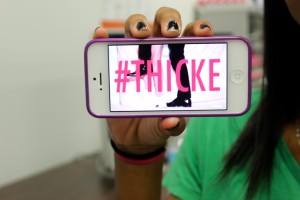
I hate these blurred lines. I know you want it.
This is what singer Robin Thicke has been preaching to the new generations. Most of the audience Thicke addresses will soon be power-hungry men taking advantage of not-so-clear signals, shady situations and the confidence they’ve been taught to feel in themselves because, obviously women around the world only want it.
The fact remains that the purport of this song is not healthy to be praising and the community has either completely missed the underlying message or is ignoring it because the song has ‘a sick beat’. Nevertheless society has let this song engrave the fabricated idea of ‘blurred lines’ into not only the young men’s minds but the women too. Men now believe that consent is something they can twist and manipulate into a yes even if the answer is a definite no. Meanwhile women believe that the only answer they can give is in the affirmative.
While the song and the message continue to go ignored it raises questions as to how this has become acceptable in our society, and how long this issue has been going on. Of course, societies have been misogynistic since the beginning of time but even back in the Babylonian society circa 539 BC, there were strict laws in Hammurabi’s code that put males to death if they ever did such a thing. Now, however, the public has taken to shamelessly blaming the victim’s instead of teaching young men what they should already know; take responsibility for their actions and right vs. wrong.
No one has raised any real awareness about the dangers of being taken advantage of and sex education rarely, if it all, teaches consent and the power of no. The new wave of feminism that’s been overtaking society through women and men alike whose voices want to be heard is not making as strong an impression as Thicke has, and to any person at risk of being taken advantage of, a message this strong and powerful is scary.
It is up to society to not glorify this song in spite of its catchy tune and celebrity features, to give attention to raising awareness and preaching equality and self-respect.







